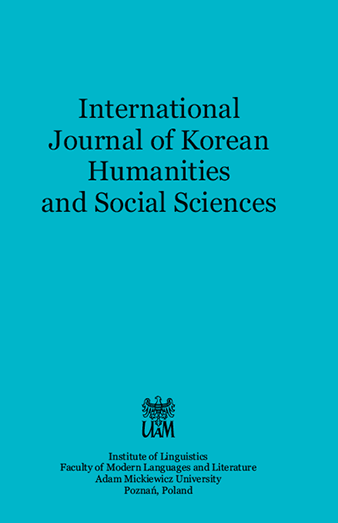OFFERING SHIFTS TO CASUAL LANGUAGE (‘BAN-MAL’) IN THE KOREAN TV SHOW "WE GOT MARRIED"
OFFERING SHIFTS TO CASUAL LANGUAGE (‘BAN-MAL’) IN THE KOREAN TV SHOW "WE GOT MARRIED"
Author(s): Youngran BAŠTANOVÁ KWAKSubject(s): Language studies, Language and Literature Studies, Applied Linguistics, Sociolinguistics
Published by: Uniwersytet Adama Mickiewicza
Keywords: speech style shifts; speech style; Korean honorifics; ban-mal; jon-daes-mal.
Summary/Abstract: This research focuses on the topic of Korean speech style shifts from polite to casual between men and women in romantic relationships. This study used data from the Korean reality TV show "We Got Married", which was broadcast in Korea for 9 years. After reviewing the system of Korean speech styles and manners of shifts, the study explores who is the first one to offer a shift, what they say, and how an offer is given. According to the analysis, older people were more likely to offer shifts first in the case of romantic relationships. In the TV show, older women tended to offer first a little more through indirect means, while older men offered rather directly. As for expressions used in the offers, the phrase ‘drop the honorifics’ and ‘talk comfortably’ were the most frequently used. They might offer in either polite or casual language, with sudden shifts. However, it was more common for speakers to offer shifts while talking in polite language. During conversations, two types of offers were observed: symmetrical shifts and asymmetrical shifts. In the first type, one speaker suggests shifts from both sides. The second type has more variations: one speaker requests the other’s permission to use casual language, allows the other to use casual language, or shows the speaker’s decision to use casual language. In the samples, symmetrical shifts occurred more often.
Journal: International Journal of Korean Humanities and Social Sciences
- Issue Year: 6/2020
- Issue No: 1
- Page Range: 37-55
- Page Count: 18
- Language: English

